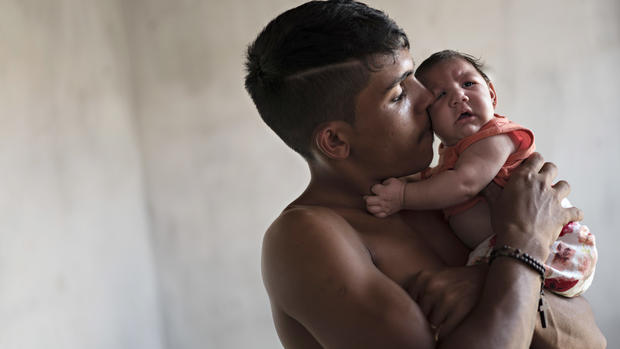CDC investigates more U.S. Zika cases possibly transmitted sexually
DALLAS-- The Centers for Disease Control is investigating 14 possible cases of Zika virus in the U.S. that may have been spread through sex.
The new cases include two pregnant women, notable since Zika has been linked to microcephaly in newborns -- abnormally small heads and developmental delays.
Newlyweds Dustin and Angelica Ueltschy were living in Brazil last summer when Dustin was diagnosed with Zika. Angelica was pregnant. Earlier this month, doctors told them to practice safe sex.
"It was not a point of concern but since the doctors suggested us to use protection, we are going to..." said Angelica.
The advice either to abstain from sex or use latex condoms during sex is now being given to all pregnant women whose male partners have been to Zika-affected countries.
On Feb. 5, the first known case of sexual transmission of Zika virus during the current outbreak was reported in Dallas. With today's 14 suspected cases, the CDC is re-thinking how the disease is spread.
Jennifer McQuiston studies Zika at the CDC.
"We really do think that mosquito-borne transmission is the most common way the virus spreads. With these new suspected cases that we're investigating, we're really becoming aware that sexual transmission might happen more often than previously thought," she said.
The virus remains in the blood for an average of about one week but can stay in semen for much longer -- for as long as 62 days in one case. There's no evidence of sexual transmission from women to men.
There has been an explosion of information about Zika recently. The World Health Organization has called the explosive spread of the virus in the Americas a global health emergency and the scientific community has tried to tackle the growing threat.
In Galveston, Texas, one lab is working with the Brazilian government to find a vaccine.

